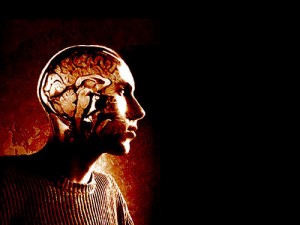Podcast: Play in new window | Download
Subscribe: Apple Podcasts | RSS
 Biochemical engineer Kai Zhuang walks us through the evolving relationships between technology and humanity, especially as it relates to engineering education, in this episode of The Engineering Commons podcast.
Biochemical engineer Kai Zhuang walks us through the evolving relationships between technology and humanity, especially as it relates to engineering education, in this episode of The Engineering Commons podcast.
- Jeff and Adam discuss the high salaries being offered to software engineers in Silicon Valley.
- Adam notes that the U.S. Federal Highway Administration (FHWA) placed a value of $2.6 million on the economic loss suffered by society due to a traffic fatality in 1994. The current estimates (2013) are considerably higher, in the range of $9.1 million.
- Our guest for this episode is Kai Zhuang, a biochemical and operations engineer who has an interest in engineering education.
- Kai’s application to the University of Toronto’s National Scholarship Program was a little more avant garde than most, consisting of creative art pieces.
- Biomedical engineering is a fairly new engineering discipline that is only now beginning to work out its own sub-fields and areas of emphasis.
- Kai was frustrated with the rigid curriculum structure he encountered as an undergraduate engineering student.
- In response to his frustrations, Kai produced a video about transforming engineering education.
- Prior guest Dave Goldberg has described engineering education as being a math-science death march.
- Kai mentions a presentation by Harvard physics professor Eric Mazur, titled Assessment: The Silent Killer of Learning.
- The Force Concept Inventory (FCI) has been used by Eric Mazur to evaluate the effectiveness of physics instruction.
- Our guest describes a Big Bang Theory episode in which physicists joke about a spherical chicken in a vacuum.
- Our modern word engineer derives from the Latin ingenium, meaning a clever invention.
- Jeff relates Montessori education methods to Kai’s suggestions for a more exploratory engineering curriculum.
- The post-WWII Grinter report (1955) caused engineering to be treated more as a “science” in the United States.
- Jeff compares producing interchangeable engineers to using the Play-Doh extruder toy.
- Kai describes the difficulty of solving problems that involve complex systems.
- A MOOC is a “massive open online course.”
- The ongoing shift of engineering instructors from expert to coach has been examined by Dave Goldberg, founder of Big Beacon.
- When looking for innovative approaches to engineering education, Kai was advised by filmmaker Ryan Varga to investigate York University in Toronto, and Olin College in Boston, Massachusetts.
- This podcast is now a media affiliate with Big Beacon.
- Kudos to PhD Comics creator Jorge Cham for the notion of brain on a stick.
- A recent quote from software developer Dave Winer concerns the inevitability of serious problems resulting from our increasing dependence on a “fragile and insecure” internet system.
- Kai is disappointed that systems thinking is almost completely missing from the engineering curriculum.
- Our guest notes that most fears are “past pain extrapolated incorrectly into the future.”
- Brené Brown has spoken eloquently about wholeheartedness and the power of vulnerability.
- You can reach Kai via email at kai [dot] hua {dot} zhuang ++AT++ gmail [dot] com.
Thanks to Andrew Mason for his photograph titled “Inside.” Podcast theme music by Paul Stevenson.